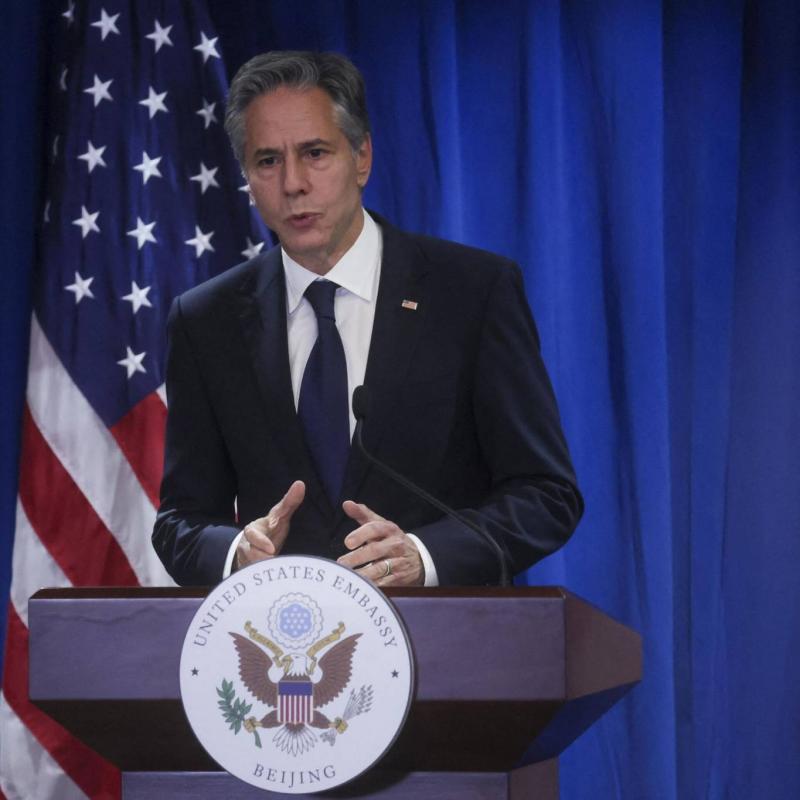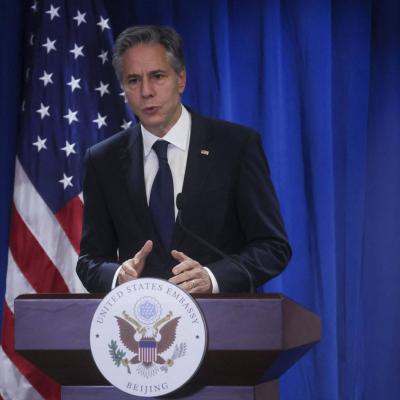U.S. Secretary of State Antony Blinken announced today, Tuesday, that he cannot confirm a report stating that Iran has slowed the pace of storing uranium enriched to levels close to those used in producing weapons, but he welcomes any Iranian steps to curb the escalation of its "increasing nuclear threat." Blinken stated that Iran’s transfer of American detainees to house arrest is unrelated to any aspect of U.S. policy towards Iran, adding that Washington is following a strategy of deterrence, pressure, and diplomacy.
Sources reported on Thursday that Iran may release five American citizens detained in a deal that includes the release of six billion dollars of Iranian funds frozen in South Korea. Iran has allowed four detained Americans to move from prison to house arrest, while a fifth was already under house arrest. The Wall Street Journal reported on Friday that Iran significantly slowed the pace of storing uranium enriched to levels close to those used in weapons production and reduced some of its stockpile in steps that could help ease tensions with the United States and revive broader talks regarding Tehran's nuclear program.
Blinken noted in a press conference, referring to former President Donald Trump's withdrawal from the nuclear deal in 2018, “We certainly welcome any steps taken by Iran that effectively reduce the increasing nuclear threat it posed since the United States withdrew from the Iran nuclear agreement.” Under the Joint Comprehensive Plan of Action (nuclear deal) of 2015 between Iran and six major powers, Iran agreed to curb its nuclear program to make it more difficult for it to obtain a nuclear weapon, a goal it denies, in exchange for reduced sanctions from the U.S., EU, and UN.
When asked if there was any connection between Iran slowing its nuclear program and the transfer of detainees to house arrest, Blinken stated that these are two separate issues. He added, “The agreement we are pursuing to secure the release of those wrongfully detained in Iran is entirely separate, and we want to achieve a successful outcome for that, which is what I am focusing on.”
**Wrongfully Detained**
The agreement announced a few days ago excluded Shahab Dalili (60), a permanent resident in the U.S. who has been detained in Iran since 2016, despite his family repeatedly urging the Biden administration to include him in the agreement or at least recognize him as one of the "wrongfully detained." Dalili began a hunger strike yesterday in Evin Prison in Iran where he is being held.
The State Department classifies their status as "wrongfully detained," meaning that the U.S. government essentially considers the charges against them politically motivated and false. Blinken confirmed that the agreement includes American citizens all classified as wrongfully detained, and stated that Washington would continue to review other cases. He added, “For privacy reasons, I cannot speak about any individual cases. I can simply say that as a matter of policy, we continuously review whether any particular individual, whether a U.S. citizen or a legally permanent resident, is wrongfully held in another country.”




